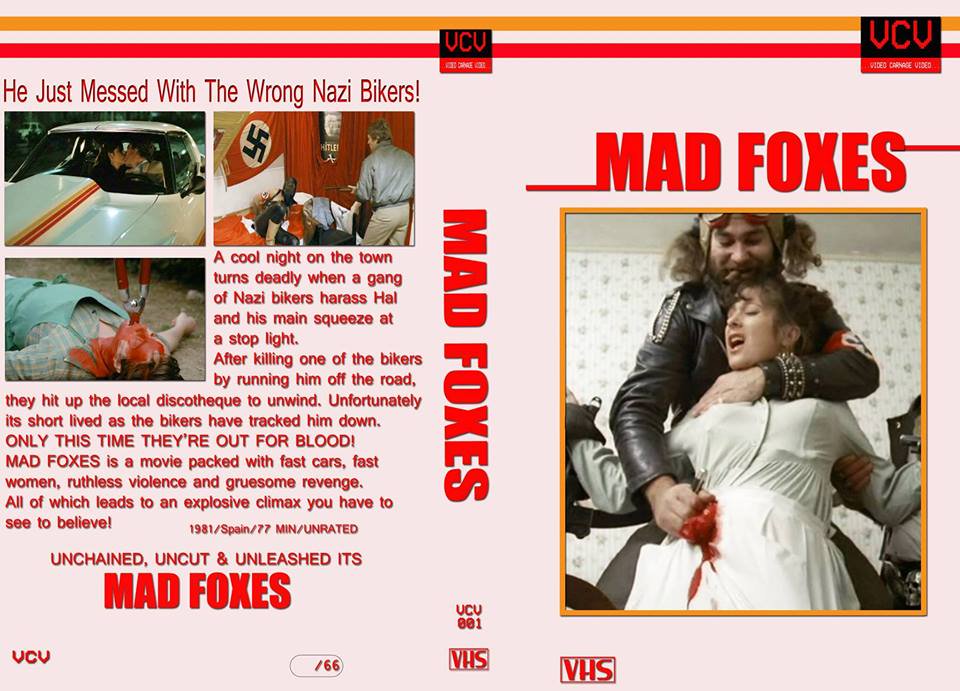This Spanish revenge movie — with a Nazisploitation twist — is all about a man getting back at the bikers who killed his wife. Sounds simple? Well, there are tons of scenes that upset U.K. censors, including rape, gore, castration and nunchakus. Yes, that’s right. Not the Nazi stuff. But the nunchakus.

According to the BBFC website: “The success of Enter the Dragon, and the kung-fu genre in general, saw public concerns arise at the concurrent spread of the use of chainsticks (or nunchakus) and other martial arts weaponry among London youths. Media coverage of the issue caught the eye of Murphy’s successor as BBFC Secretary, James Ferman. In December 1979, Ferman recalled Enter The Dragon for another look in the light of these anxieties. Ferman asked the film’s distributor to remove the sight of chainsticks in the fight sequence between Bruce Lee and his attackers. The images nunchakus were also requested to be removed from the film’s trailer and its promotional posters.”
The removal of martial arts weaponry soon became standard BBFC practice with the advent of VHS bringing violent kung-fu films into the home in the early 1980s. When Enter The Dragon came out on VHS, some cuts were restored but the weaponry remained cut out, which has lasted way into the DVD and streaming eras.
That’s right — you can show guns in U.K. films, but not martial arts weapons.
Sounds legit to us.
Besides, you can’t go wrong with a film that pairs the violence with my then — and still — favorite band (next to the almighty Saxon and April Wine), Switzerland’s Krokus with “Easy Rocker” and “Celebration.” Appearing on their U.S. breakthrough album Hardware (1981), the album spawned their first U.S. Top 40 hit with “Burning Bones,” courtesy of its AC/DC-like qualities.
In fact, when formulating their next move after the death of Bon Scott, one of the first people Angus Young and the boys called in for an audition was Krokus lead singer, Marc Storace. At the time, Krokus made some headway in U.K. and U.S. with the minor hits “Heatstrokes” and “Bedside Radio” from Metal Rendezvous (1980), which were big hits throughout Europe. Storace turned them down because he felt Krokus was “going places.”
Then Black in Black (1980) — featuring Brian Johnson — shook the world. And I rented a copy of Mad Foxes after reading Krokus tunes would be in the film. It took four video stores, before I found a copy. And I was a happy, young metal pup.
You can watch the bad karate madness backed by Krokus on Tubi. You can hear April Wine tunes, by the way, in the Canadian film The Killing of Randy Webster. As for the almighty Saxon: How is it that they only made one film soundtrack appearance? “Everybody Up” (from the beginning to their downward slide; but the albums from that era grew on me over the years) from their seventh studio album Innocence is No Excuse (1985) appears on Lamberto Bava’s Demons released that same year.
About the Author: You can read the music and film reviews of R.D Francis on Medium and learn more about his work on Facebook.